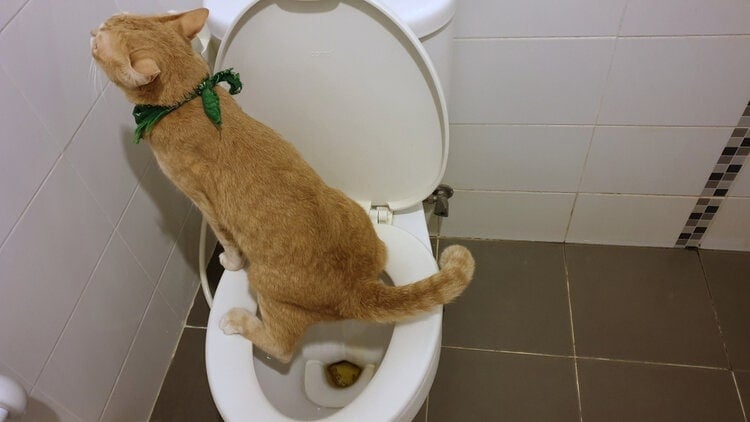We've stumbled upon this article about How to Dispose of Cat Poop and Litter Without Plastic Bags directly below on the net and felt it made sense to write about it with you on my blog.

Intro
As pet cat proprietors, it's vital to be mindful of how we take care of our feline buddies' waste. While it may seem convenient to flush cat poop down the toilet, this practice can have detrimental repercussions for both the atmosphere and human health and wellness.
Alternatives to Flushing
Thankfully, there are safer and more responsible means to throw away feline poop. Consider the complying with alternatives:
1. Scoop and Dispose in Trash
One of the most typical method of dealing with cat poop is to scoop it right into a biodegradable bag and toss it in the trash. Be sure to make use of a specialized clutter scoop and throw away the waste promptly.
2. Use Biodegradable Litter
Select eco-friendly cat trash made from products such as corn or wheat. These clutters are eco-friendly and can be securely thrown away in the garbage.
3. Hide in the Yard
If you have a backyard, consider burying cat waste in a designated area far from veggie yards and water resources. Be sure to dig deep enough to stop contamination of groundwater.
4. Set Up a Pet Waste Disposal System
Invest in a pet garbage disposal system particularly designed for cat waste. These systems make use of enzymes to break down the waste, minimizing odor and ecological influence.
Health Risks
Along with ecological worries, flushing cat waste can additionally posture health and wellness risks to human beings. Feline feces may contain Toxoplasma gondii, a bloodsucker that can cause toxoplasmosis-- a possibly severe ailment, especially for expecting women and people with damaged immune systems.
Ecological Impact
Flushing feline poop presents unsafe pathogens and bloodsuckers right into the water supply, positioning a substantial risk to aquatic ecological communities. These contaminants can negatively affect aquatic life and concession water top quality.
Conclusion
Accountable family pet possession expands past giving food and shelter-- it also entails correct waste monitoring. By avoiding flushing cat poop down the toilet and opting for alternative disposal methods, we can minimize our ecological impact and shield human wellness.
Why You Should Never Flush Cat Poop Down the Toilet
A rose by any other name might smell as sweet, but not all poop is created equal. Toilets, and our sewage systems, are designed for human excrement, not animal waste. It might seem like it couldn’t hurt to toss cat feces into the loo, but it’s not a good idea to flush cat poop in the toilet.
First and foremost, assuming your cat uses a litter box, any waste is going to have litter on it. And even the smallest amount of litter can wreak havoc on plumbing.
Over time, small amounts build up, filling up your septic system. Most litter sold today is clumping; it is made from a type of clay that hardens when it gets wet. Ever tried to scrape old clumps from the bottom of a litter box? You know just how cement-hard it can get!
Now imagine just a small clump of that stuck in your pipes. A simple de-clogger like Drano isn’t going to cut it. And that means it’s going to cost you big time to fix it.
Parasitic Contamination
Believe it or not, your healthy kitty may be harboring a nasty parasite. Only cats excrete Toxoplasma in their feces. Yet it rarely causes serious health issues in the cats that are infected. Most people will be fine too if infected. Only pregnant women and people with compromised immune systems are at risk. (If you’ve ever heard how women who are expecting are excused from litter cleaning duty, Toxoplasma is why.)
But other animals may have a problem if infected with the parasite. And human water treatment systems aren’t designed to handle it. As a result, the systems don’t remove the parasite before discharging wastewater into local waterways. Fish, shellfish, and other marine life — otters in particular — are susceptible to toxoplasma. If exposed, most will end up with brain damage and many will die.
Depending on the species of fish, they may end up on someone’s fish hook and, ultimately on someone’s dinner plate. If that someone has a chronic illness, they’re at risk.
Skip the Toilet Training
We know there are folks out there who like to toilet train their cats. And we give them props, it takes a lot of work. But thanks to the toxoplasma, it’s not a good idea.

We were guided to that editorial on Can You Flush Cat Poo or Litter Down the Toilet? from a good friend on our other domain. Those who enjoyed our blog posting plz be sure to pass it around. Thanks for going through it.
Start Now